Police have used tear gas against anti-government demonstrators after thousands defied a rare police protest ban by taking to the streets of Yuen Long. The march on Saturday saw crowds vent their anger with authorities who they accuse of negligence over a mob attack last week.
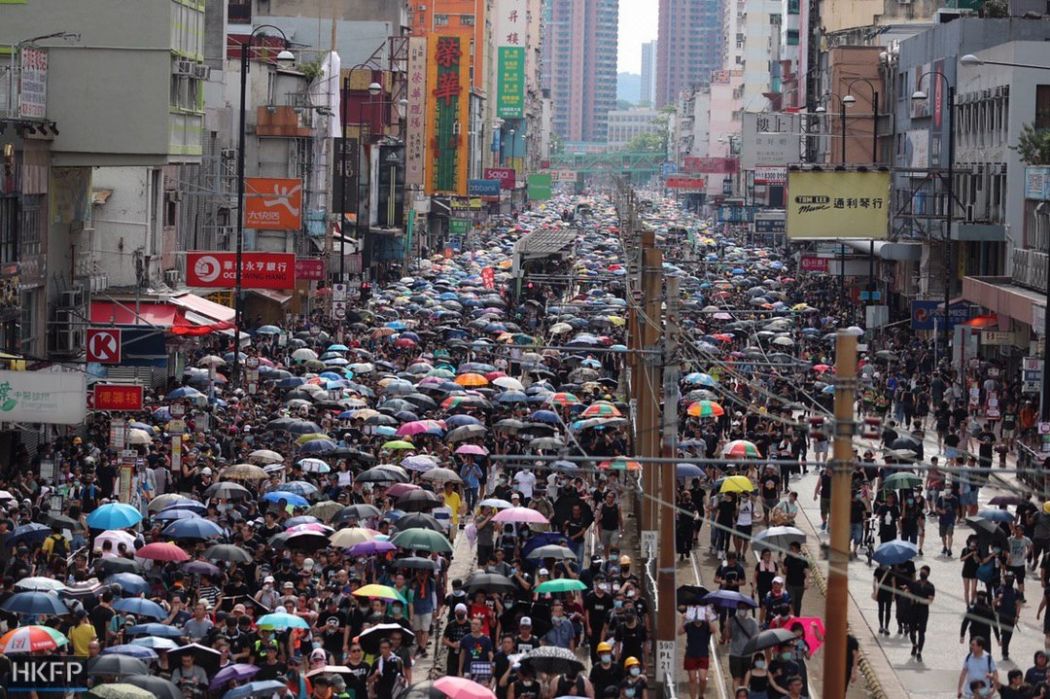
On Thursday, the police issued a letter prohibiting the rally dubbed “Reclaim Yuen Long,” citing concerns for public safety, public order, other people’s rights and freedom. The move came amid pressure from rural groups.
Masked, black-clad protesters nevertheless flooded the MTR station from mid-afternoon, convening around Shui Pin Tsuen playground, opposite a police station, and occupying multiple rounds around the New Territories town.
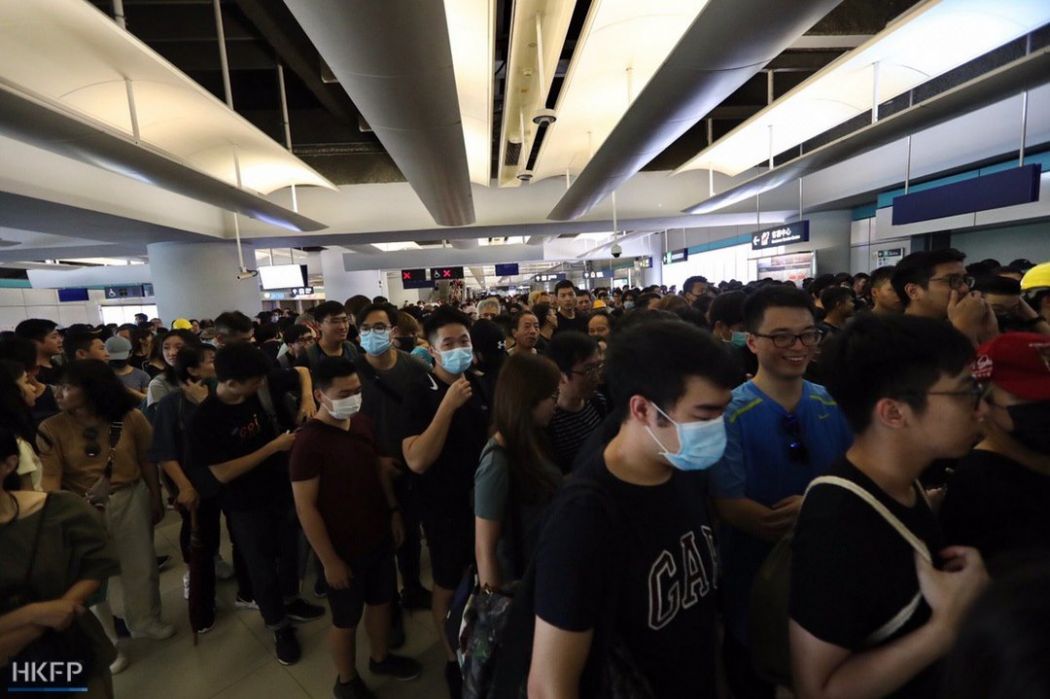
Shops along the route closed their shutters ahead of the rally as buses were diverted. Protesters sought respite from the summer heat in a nearby mall which closed most of its stores hours before the march began.
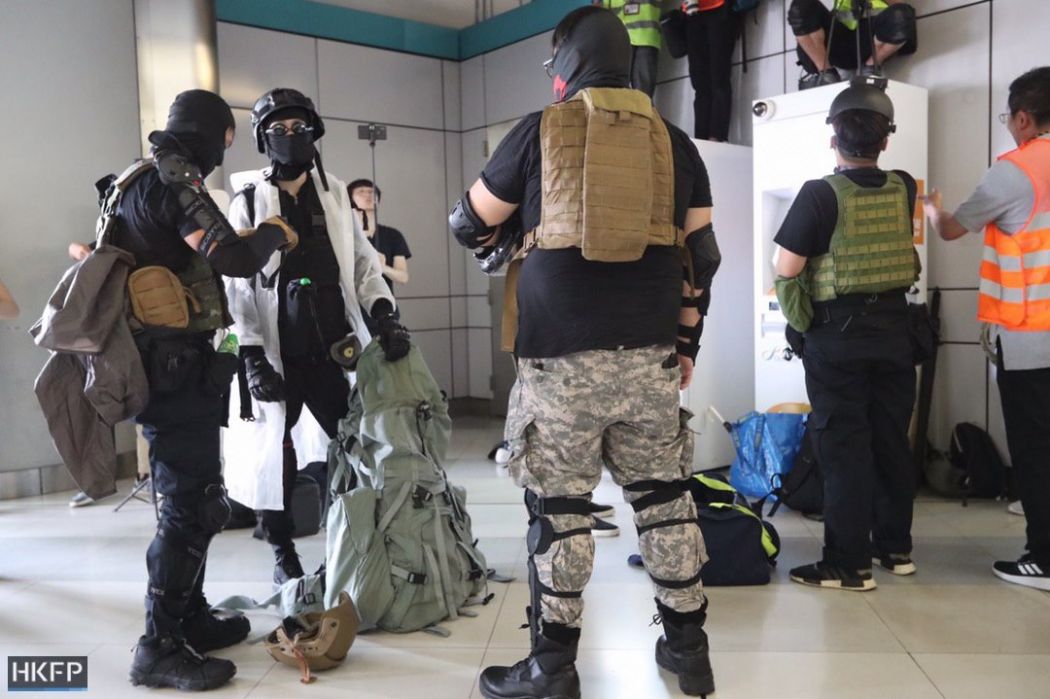
Some uprooted road fencing in an effort to create makeshift roadblocks, as crowds flooded into the intersection between Castle Peak Road and Long Yip Street from around 3.30pm.
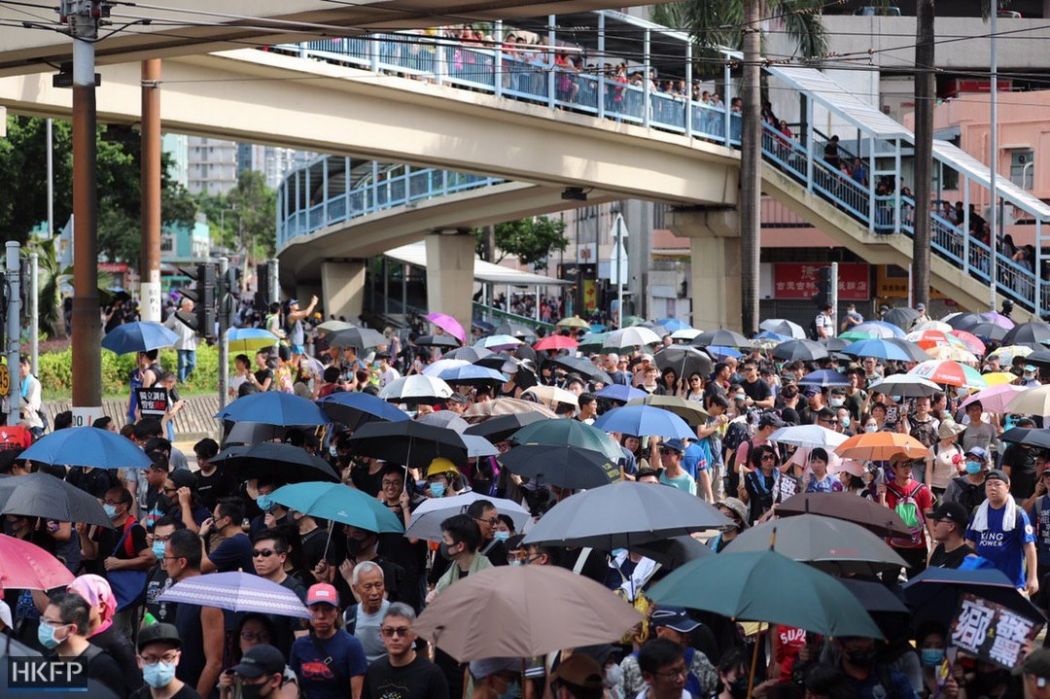
Many chanted a slogan popularised by localist activist Edward Leung: “Reclaim Hong Kong, the revolution of our time.”
Masked protesters attempt to dismantle a fence separating two roads on Long Yip street.
Some are urging only those who are wearing gloves to touch the fence, while others are calling on people to shield them using umbrellas. https://t.co/xTFFQ9TiE5 #HongKong pic.twitter.com/Y993jDiOg9
— Hong Kong Free Press (@HongKongFP) July 27, 2019
After a few hours of street occupation, riot police moved into the area. At around 5.15pm, tear gas was deployed to disperse the crowd. More than a dozen canisters were subsequently used.
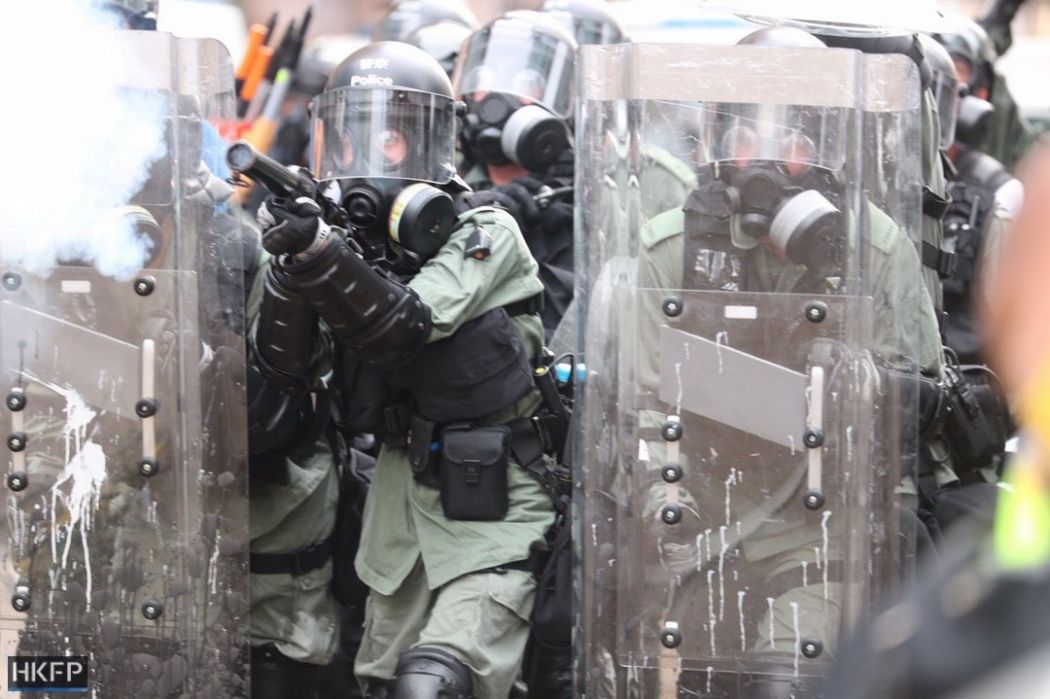
Democratic Party lawmaker Roy Kwong demanded to speak with the police commander afterwards, asking for them to explain why the tear gas was shot near an elderly people’s home.
In Yuen Long, an unmasked man in his 60s, wearing black & holding an umbrella, shouts profanities at adjacent police officers while protesters urge him not to throw anything. https://t.co/xTFFQ9TiE5 #HongKong #NoToChinaExtradition #china #antiELAB pic.twitter.com/yXQmAnxAUI
— Hong Kong Free Press (@HongKongFP) July 27, 2019
The demonstration was partly a response to a bloody attack in Yuen Long MTR station last Sunday.
An unknown group, thought to be targeting protesters returning from an anti-extradition law rally on Hong Kong Island, violently assaulted crowds with rods last Sunday.

At least 45 people were injured, many of whom were commuters and journalists, as well as a lawmaker, before the men retreated to Nam Pin Wai village. One was in a critical condition. Twelve were later arrested in relation to the incident, including some from triad backgrounds.
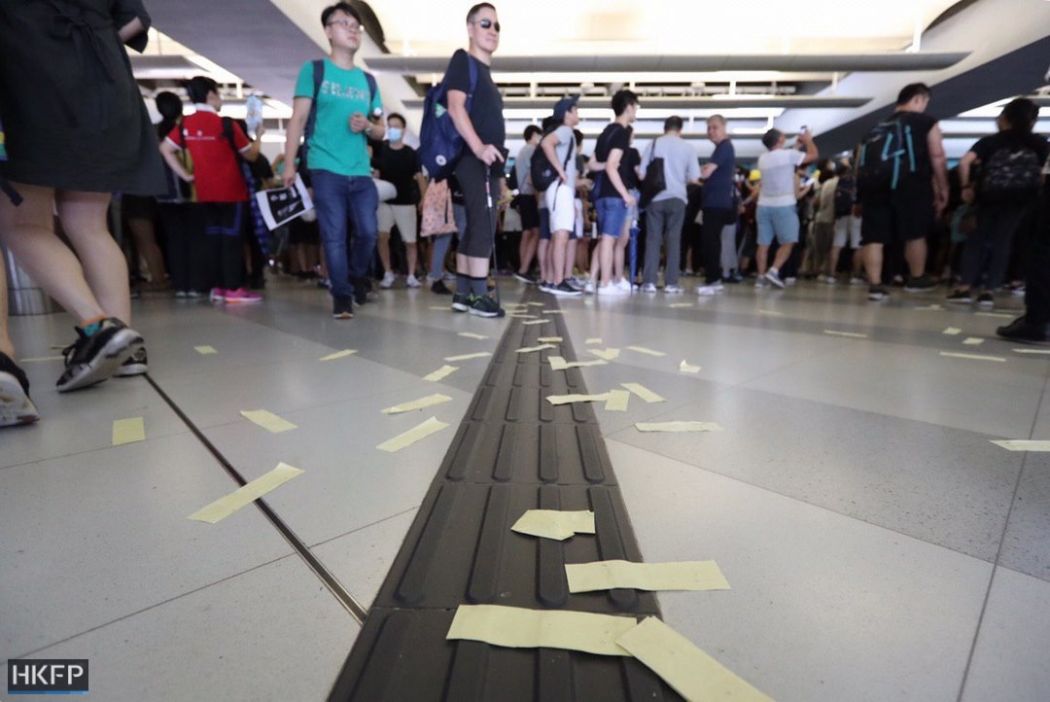
Police listed five factors for their decision to ban the march, which included the July 21 attacks: “We have reason to believe that the marchers will engage in physical confrontation with villagers, and will pose a danger to marchers, villagers and other members of the public,” the letter read.

In an earlier letter to the Yuen Long police commander, the chair of the Shap Pat Heung Rural Committee expressed “strong objection” to Saturday’s march, citing potential attacks on Nam Pin Wai village.

Riot police gathered at the village on Saturday, as some villagers urged protesters to maintain the peace.
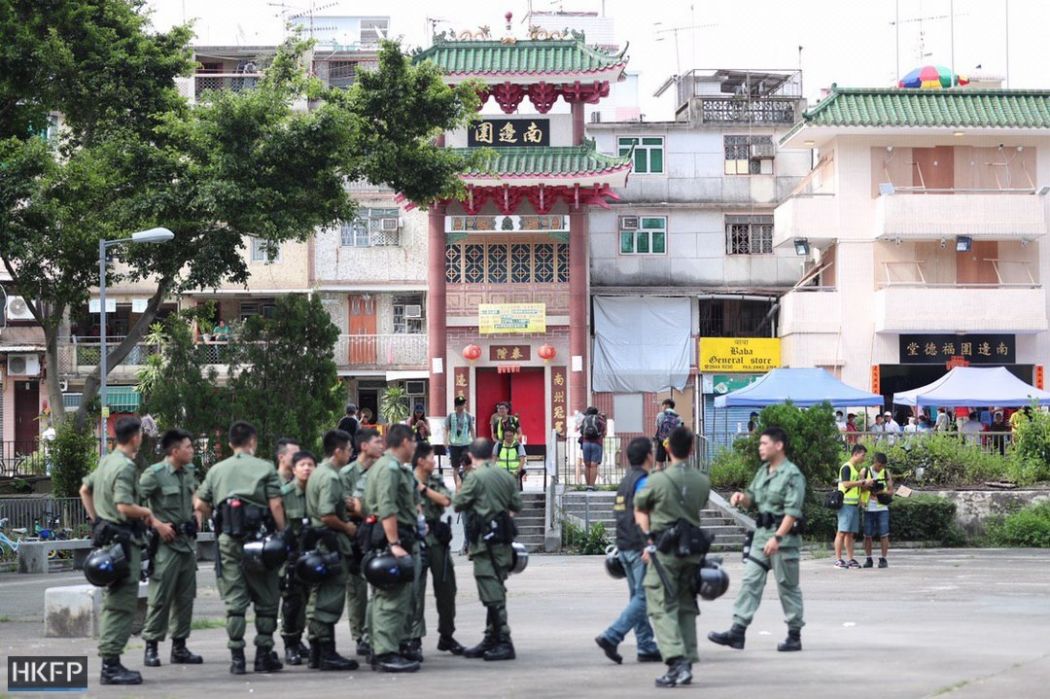
Under the Public Order Ordinance, participating in an unlawful assembly carries a maximum penalty of five years in prison upon conviction on indictment, or a HK$5,000 fine and three years in prison upon summary conviction.
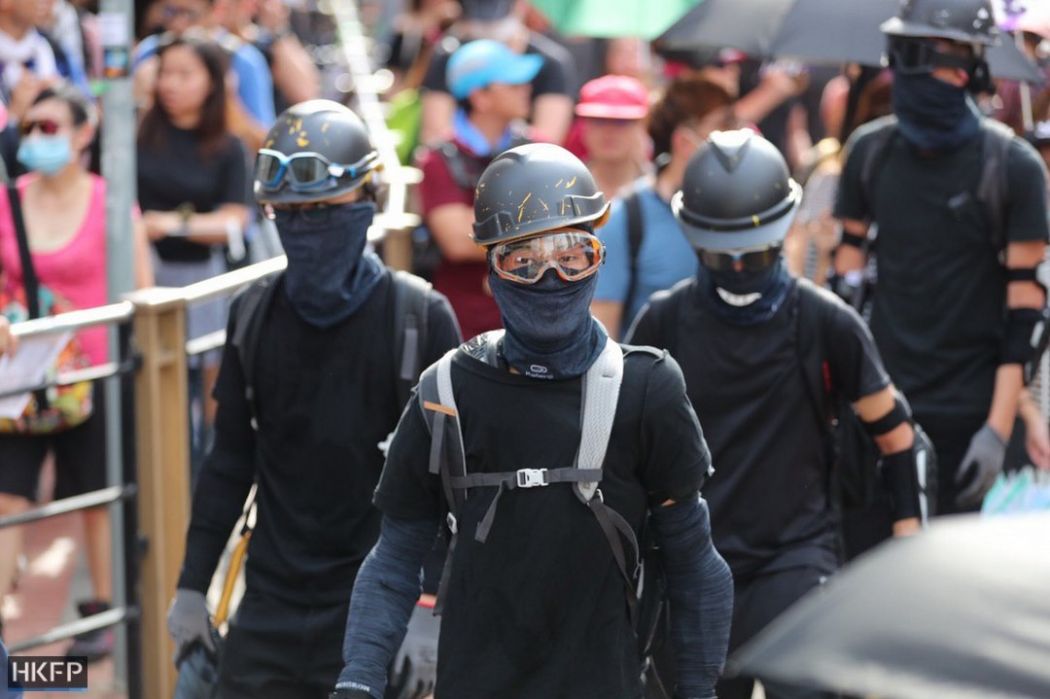
Saturday’s scenes follow weeks of protests sparked by the government controversial extradition bill, which would allow the chief executive and local courts to handle fugitive transfer requests to jurisdictions including China. The proposed law was suspended on June 15 but not axed.
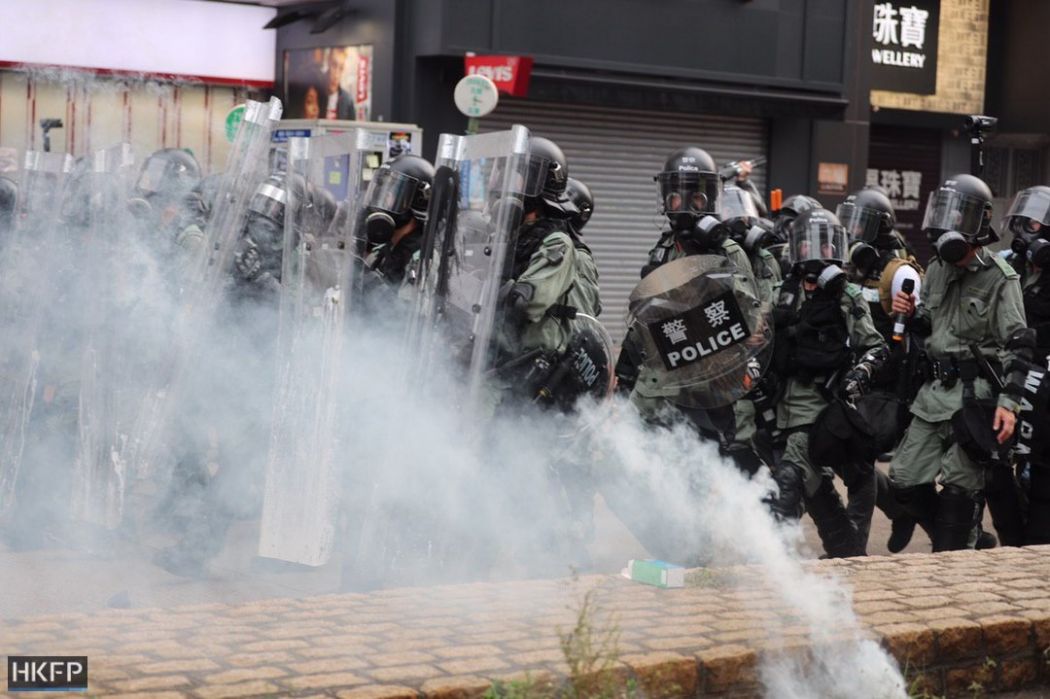
The political crisis has roiled the city as additional demands were adopted including calls for universal suffrage, retraction of the term “riot” to describe the protests on June 12, and the establishment of an independent inquiry into alleged selective policing and misconduct related to the use of crowd control measures.
